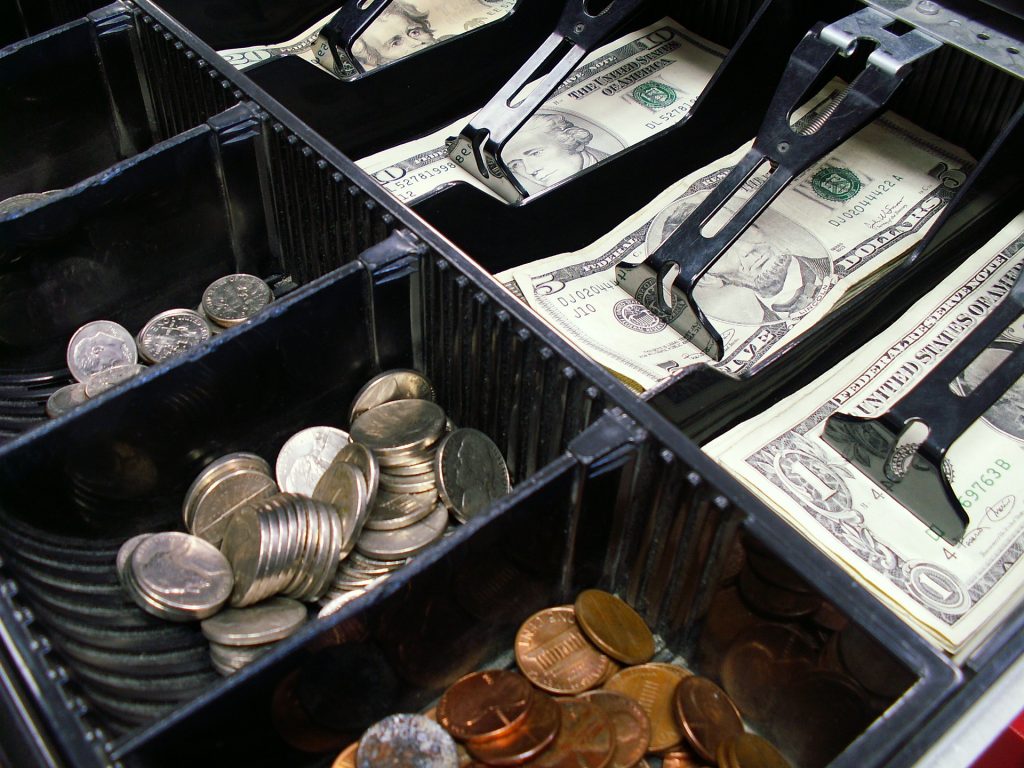A hearing is set for today on two bills pending in the Massachusetts Legislature that would repeal the state’s decades-old ban on cashless stores.
If passed, the bipartisan legislation, which is drawing fire from the ATM industry, would put Massachusetts at odds with efforts this year in a number of cities and states that have banned or proposed bans on stores prohibiting cash payments. With the growth of Amazon.com Inc.’s Amazon Go stores and other cashless retailers and sports and entertainment venues, opponents fear such establishments discriminate against cash-dependent consumers who don’t have credit or debit cards or mobile-payment apps.
The little-noticed Massachusetts bills both were introduced in January. Each would repeal Section 10A of Chapter 255 of the state’s general code, which reads: “No retail establishment offering goods and services for sale shall discriminate against a cash buyer by requiring the use of credit by a buyer in order to purchase such goods and services. All such retail establishments must accept legal tender when offered as payment by the buyer.”

Massachusetts originally passed that provision in 1978, a time when credit card issuance was booming but long before debit cards and mobile payments came onto the point-of-sale payments scene.
The Legislature’s Joint Committee on Consumer Protection and Professional Licensure has scheduled a hearing this afternoon at the Massachusetts State House in Boston. The House measure, H.274, is sponsored by state Rep. Bradley H. Jones Jr., R-North Reading, the Republican minority leader, and has eight co-sponsors. The Senate bill, S.181, is sponsored by state Sen. Michael J. Rodrigues, D-Westport, and has two co-sponsors.
Spokespersons for Jones and Rodrigues could not be reached for comment Monday morning.
Houston-based ATM network owner and operator Cardtronics plc sent a memorandum of opposition Friday to the Massachusetts Legislature opposing the bills. “Recently, as the trend of cashless merchants and sports arenas grew, 11 municipalities and states began introducing similar legislation, heralding Massachusetts as a champion of payment choice,” the letter says. It later adds that “as the largest operator of ATMs in the world, Cardtronics believes that cash should be included, not excluded from the many payment options—physical and digital—that consumers enjoy today. Not everyone has equal access to all payment types, but everyone has access to cash.”
The ATM Industry Association trade group also has gone on record against the bills. “This proposed action would have the opposite effect of ‘protecting’ consumers—it would harm a significant portion of them,” a letter from Sioux Falls, S.D.-based ATMIA says.
The letter notes that cash remains highly popular for many types of purchases. “The real driver of these new efforts to ban cashless retail establishments is potential disenfranchisement of poor, unbanked, and underbanked consumers,” ATMIA said. “This segment represents about 27% of the U.S. population, which is disproportionately black and Hispanic, and very dependent on cash.”




